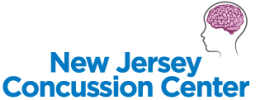Frequently Asked Questions
When is referral to a NEUROSURGEON appropriate?
Referrals are typically made, by a pediatrician, neurologist or another doctor, to diagnose or rule out diseases of the brain or spinal cord. This information also helps to describe the identified condition’s impact on the patient’s daily functioning. Examples include traumatic brain injury, hydrocephalus. Cerebral palsy, Spina bifida, epilepsy, arachnoid cysts, brain or spinal cord tumor, stroke, concussion, vascular disease (AVM’s and aneurysms) and other types of neurological problems. The information gathered during this assessment will go to your doctor, and he or she will use this information to make decisions regarding your health care. If these types of conditions are diagnosed or suspected, a baseline evaluation with follow-up (usually yearly) may be useful in interpreting possible changes in one’s disease condition.
Neurocognitive or neuropsychological testing is also beneficial in tracking progress for patients undergoing rehabilitation and/or to evaluate how effective a certain treatment is for them. Neurocognitive or neuropsychological testing can help in planning educational and vocational programs as well. They can also assist in disability determination or for forensic (medical-legal) uses.
When should I think about having a NEUROSURGICAL OR neurocognitive evaluation?
Difficulties that might indicate the need for an evaluation include:
• Difficulty with moving or balance
• Shaking or tremor
• Memory loss
• Difficulty communicating (getting the right words out and/or understanding others)
• Attention and concentration problems
• Difficulty planning and organizing
• Changes in spatial skills or visual perception
• Difficulty reading or writing
• Disturbed thinking or confusion
• Increased impulsivity
• Slowed thinking speed
Talk to your doctor if you have any symptoms mentioned above.
Why Should I Use The IMPACT Test?
The IMPACT test can help determine whether a player is ready to return to play and helps protect the player from potentially serious consequences of returning to play to early. Traditional procedures such as CT and MRI are helpful for identifying serious brain injuries such as skull fractures and hematomas but are ineffective at determining functional effects that occur from a concussion. In the past, clinicians have had to rely on patient reports to diagnose or track a concussion.
If there is suspicion of a concussion during the season, the test will be administered again to determine if the results have changed from the baseline test. The comparison of these two tests will help diagnose and manage the concussion properly. Tests can also be administered over the following days or weeks to determine the progress of the athlete to ensure safe recovery and Return-to-Play.
How can my town, club, or school teams provide baseline testing or concussion education training for athletic trainers, coaches, players and parents?
The New Jersey Concussion Center now offers individuals and groups an easier way to take care of their responsibilities in regards to concussion education. Our team of specialists are here to serve your specific needs. Whether it be in-service at your location or bringing individuals into our brand new facility our specialists can develop a program that will fit your every need.
